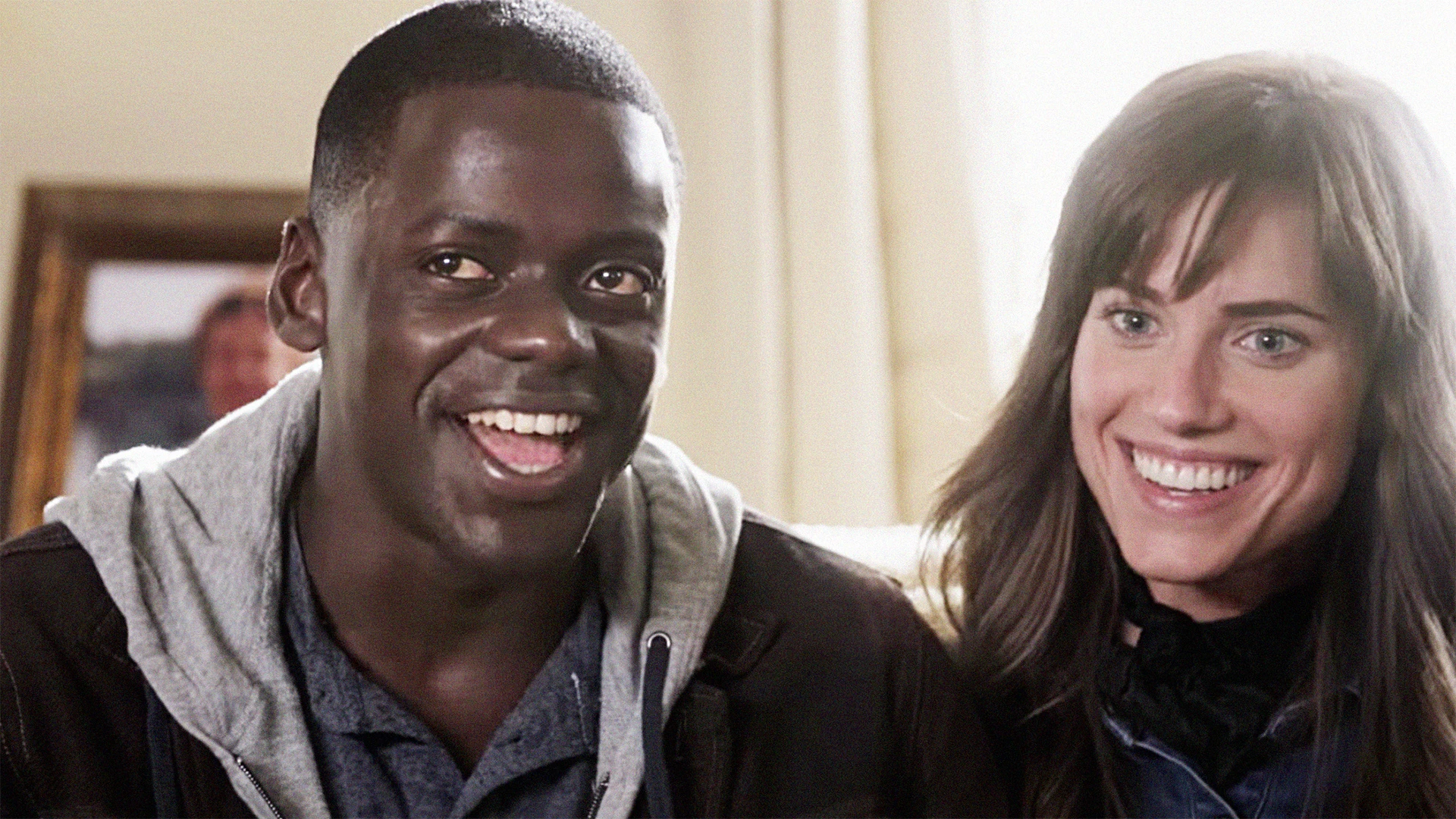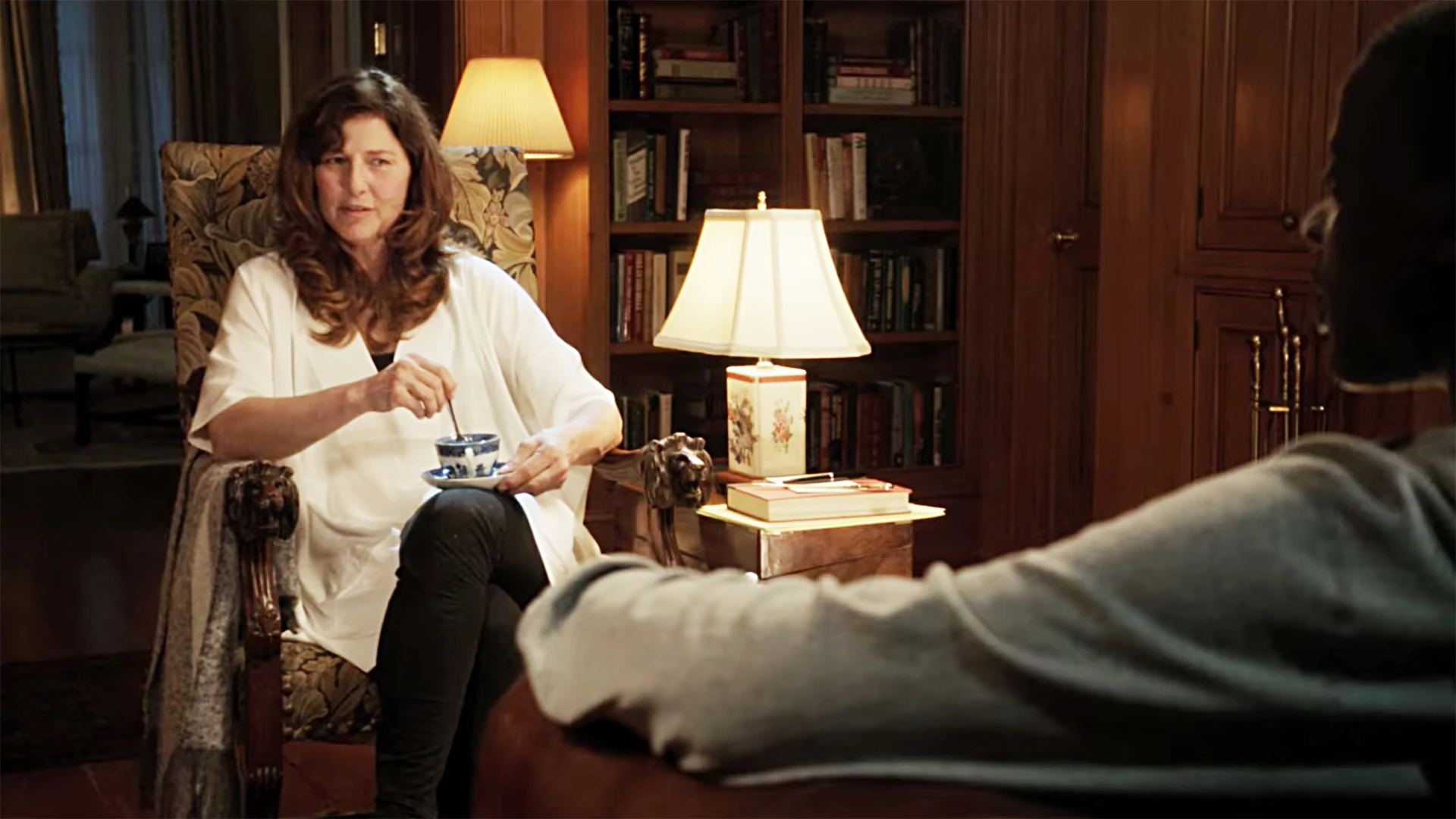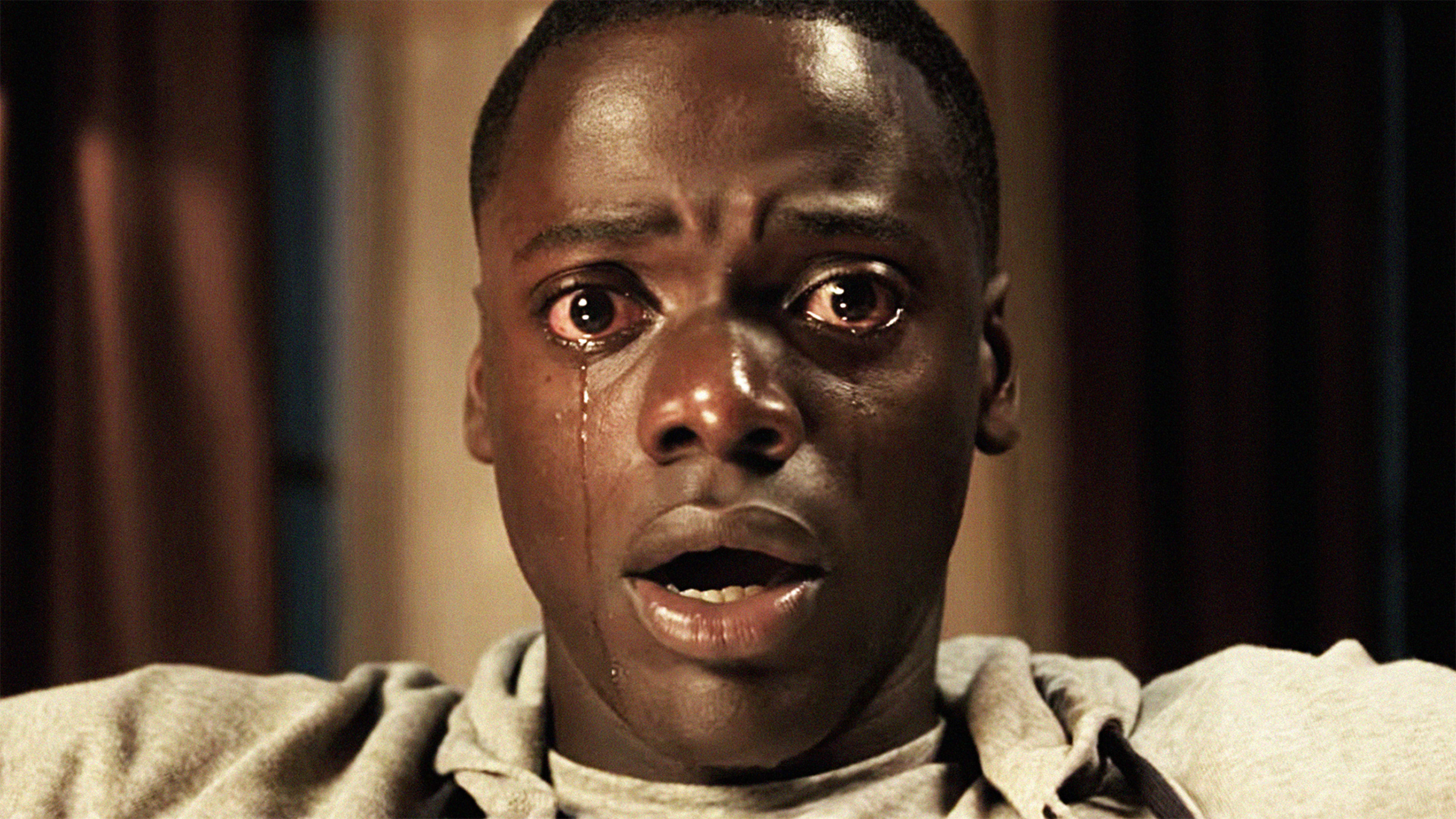Sometimes, a transcendent genre movie ekes out an unlikely Best Picture nomination, and just getting the nod is honor enough. (Ahoy, District 9!)
Get Out is not that kind of movie.
The brainchild of former Mad TV cast member and first-time filmmaker, Jordan Peele, Get Out surprised almost everyone last February by becoming an instant phenomenon. Previously, Peele had demonstrated an expert command of horror tropes and social commentary—and a flair for subverting both—with Key and Peele, the much-loved sketch show he made for five seasons with Keegan-Michael Key. Still, nothing from that series necessarily signaled that behind the scenes lurked a cinematic prodigy—the mutant spawn of Ira Levin, Stanley Kubrick, and John Carpenter, but with a voice all his own and a lot to say. Now that we’ve had a year to digest the ascendant auteur’s fully formed debut, one thing is clear: Get Out deserves to be crowned Best Picture at this Sunday’s Oscars, and it’s ridiculous to pretend the Academy would be doing the film a favor by recognizing its excellence.
Earlier this week, Vulture reported that some older Academy voters were refusing to so much as consider Get Out, deeming it “not an Oscar film.” But what even is an Oscar film nowadays? The definition keeps evolving as styles, tastes, and formats weave in and out of fashion. Sprawling, sand-packed epics like Lawrence of Arabia and Ben-Hur used to be Peak Oscar. Later, it was big weepy dramas like Kramer vs Kramer and Ordinary People, which won back-to-back in the early ’80s. Between the years 1961 and 1968, four out of eight Best Picture winners were musicals—which doesn’t mean Dr. Strangelove wasn’t “an Oscar film” in 1965, rather just that My Fair Lady was (apparently) more in step with the times.

Generally, the films most likely to be nominated seem to be inspirational dramas about the triumph of the human spirit, capital-M Message movies, highbrow literary fare, and anything celebrating the magic that is Hollywood. However, plenty of genre anomalies have turned the definition of an Oscar movie on its head by winning Best Picture. Silence of the Lambs is an exceptionally well-made thriller about serial killers. The French Connection is a straight-up action machine. The Departed is a gangster movie with a scene in which Jack Nicholson brandishes a floppy fake dong, and it ends with a close-up of an actual rat running near a figurative one. (Do you get it???)
The Exorcist was nominated and it did not win, which seems like a travesty in retrospect when you measure its influence against your grandpa’s favorite crime movie, The Sting, to which it lost. But regardless of which movies have been deemed Oscar-worthy in the past, Get Out should be evaluated on its own terms, unbound by expectations. Maybe this year, the definition of an Oscar movie will expand to make room for a social horror flick involving a hypnotic teacup.
Get Out is a unicorn movie—at once timeless and extremely relevant, in addition to being utterly original. Nobody can seem to tell whether it actually is a horror movie or a thriller, and the Golden Globes somehow saw fit to categorize it as a Comedy. (The great Lil Rel Howery may serve as a necessary, hilarious tension-drainer throughout, but this is not a comedy.) Perhaps the reason for this misnomer is because the movie’s central conceit is satirical, and some people equate satire with comedy. The metaphors at play, though, are more complex and cerebral than, say, The Truman Show. The concept of liberal-presenting white people taking selective ownership over black bodies, supposedly out of appreciation for them, has resonance in many different ways. Search any legacy magazine and you’ll likely find a thinkpiece or two interpreting them. Jordan Peele’s ability to fuse primal, existential fears with more typical cinematic horror elements–and make some oblivious (white) audience members aware of the former–is nothing short of brilliant.

No other film last year hit so hard on so many levels–both in terms of what’s on screen and in quantifiable impact. Get Out made a quarter-billion dollars worldwide, on a budget of under $5 million. It got a 99% on Rotten Tomatoes and topped several critics’ end-of-year lists. It also has the distinction of being both a rousing crowded-theater experience and the kind of intricately crafted movie that rewards contemplative close-reads.
Peele has claimed that he designed his film with theaters in mind, and anyone who saw it that way knows the deafening audience response Get Out provokes. (If there wasn’t at least one lady screaming the title line at Daniel Kaluuya’s Chris at some point during your screening, did you even see the movie?) At home, however, and especially during a re-watch, is where you pick up on the nuances and subtleties that reveal just how thoroughly Peele has thought this thing through. There’s the fact that Allison Williams’ Rose argues with the cop asking for Chris’s ID at the beginning of the film–not simply because white privilege allows her to do so, as it first seems, but because she doesn’t want the cop to remember Chris’s name when he goes missing. There’s the pointed bickering between Catherine Keener’s matriarch Missy and the housemaid Georgina (Betty Gabriel), which you only later realize reflects the strained relationship of a wife and her mother-in-law. And how about the fact that Chris gains his freedom near the end of the movie by PICKING COTTON from the easy chair he’s strapped into? Get Out only gets richer the more it’s seen.

At one point during the Blu-Ray commentary track, Peele says he hopes “Now you’re in the sunken place” becomes a classic line. He must have recorded the track before the film was released. Otherwise, he would’ve had to realize the extent to which this movie smashed into popular culture like a meteor and left a Get Out-shaped crater in its wake, because it happened quickly. Within a month, kids were posting Get Out Challenge videos in homage to Walter the gardener’s big moment on the front lawn. By then, the Sunken Place had also become a household reference, and the family at the center of the film became convenient avatars for villainy with many applications. Get Out drops quotable lines and GIFable images like a toddler pouring cereal. This movie now belongs to us all.
Considering the film’s quality, impact, profitability, and popularity, it should not be considered as much of an underdog in the big race as it appears to be. (Although some insiders are beginning to speculate that it could pull off an upset, mostly thanks to a weighted voting system.) Apart from all other metrics, though, the Best Picture winner should also be the film people are most likely to recall at a mention of the year it came out. Out of all the fantastic nominees that infused themselves within the national conversation, Get Out seems likely to be the one that stays in.
Recognize your brand’s excellence by applying to this year’s Brands That Matter Awards before the early-rate deadline, May 3.
